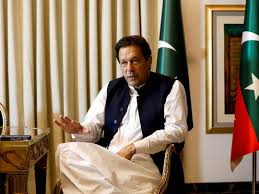
In a recent development, Pakistan’s former Prime Minister Imran Khan has been acquitted of leaking state secrets by a two-member bench at Islamabad High Court. However, despite this acquittal, Khan remains incarcerated on other charges.
Chief Justice Aamer Farooq of Islamabad High Court announced the decision to overturn Khan’s treason conviction, as witnessed by an AFP court reporter. Salman Safdar, a lawyer representing Khan’s Pakistan Tehreek-e-Insaf party, confirmed the acquittal.
Despite this legal victory, Khan continues to face other charges that have led to his imprisonment. The former prime minister received a seven-year sentence for breaking Islamic law by marrying his wife Bushra Bibi too soon after her divorce. Additionally, Khan has been found guilty of corruption related to gifts received during his time in office from 2018 to 2022. Although his 14-year sentence was suspended in April, the conviction remains on his record.
These legal battles come amidst a politically charged atmosphere, with Khan alleging that the cases against him were orchestrated to prevent his return to power. The timing of these legal challenges, particularly in the lead-up to elections, has raised questions about the motivations behind them.
Imran Khan, a prominent figure in Pakistani politics, served as the Prime Minister of Pakistan from 2018 to 2022. His tenure was marked by various challenges and controversies, including economic issues, foreign relations, and domestic governance.
The acquittal of Imran Khan on the charge of leaking state secrets marks a significant legal development. However, his ongoing legal battles and imprisonment underscore the complex and contentious nature of politics and law in Pakistan, highlighting the ongoing challenges faced by political figures in the country.
Sources By Agencies


